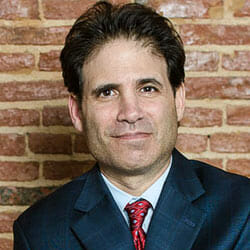Why Choose Us?
Many clients think that choosing an attorney is a difficult decision. We are here to tell you that it is not. You should look for someone with the experience to get the job done for his clients, one who fights for his clients, and one with a proven track record. Our Baltimore nursing home lawyer is that person. Here are some reasons to choose Steven H. Heisler:
- Steven was a prized Golden Gloves boxer and a tenacious union organizer before he turned to law to help people. In other words, he has been fighting his whole life.
- He truly cares about the rights of his clients and the rights of their loved ones.
- His past clients give him rave reviews.
- He gets results for his clients and has recovered millions of dollars of compensation for them.
- His legal work has made him a nationally recognized trial lawyer.
Physical Abuse in Nursing Homes
Any action that deliberately causes pain, injury, or impairment qualifies as physical abuse. Included among possible abusive actions are slapping, pinching, or hitting the resident; handling them roughly when changing clothing or diapers, or during bathing; lifting them improperly so that they fall; using restraints inappropriately; and deliberate isolation. Warning signs of physical abuse are:
- Unexplained burns, cuts, bruises, welts, sprains, broken bones, or dislocations
- Broken eyeglasses
- Restraint marks
- Members of the staff do not want you to be alone with the resident.
Psychological/Verbal Abuse in Nursing Homes.
This type of abuse includes the use of abusive words and terms, name-calling, yelling at the resident, belittling or humiliating them, and threatening them or otherwise intimidating them. Things to watch out for include:
- Any controlling or threatening behavior you see from the staff
- Sudden behavioral changes in the resident, such as withdrawal or unexpected depression
- Signs of agitation in the resident, such as sucking, rocking, or mumbling to themselves.
It is important to note that, when your loved one has dementia, signs of psychological abuse can be difficult to spot. If you sense something is amiss, listen to your gut. If your gut tells you that something is wrong and that your loved one is being abused, contact a Baltimore nursing home lawyer right away.
Gross Neglect Can Be Part of a Nursing Home Abuse Lawsuit
Gross neglect includes such things as not providing adequate food, shelter, clothing, medical care, medication, or assistance. Two areas need spotlighting:
Medication abuse can mean giving the wrong medications, giving the right medications but at the wrong time or in the wrong amounts, or withholding medications either accidentally or on purpose. Sometimes pain medications are not given because a staff member is stealing the drugs.
Nutritional neglect can mean receiving inadequate amounts of food, inappropriate types of food (something the resident cannot physically eat or digest), food of poor quality, food that tastes bad, insufficient liquids, or not helping the resident eat if they cannot feed themselves.
Some warning signs of gross neglect are:
- Dehydration, unexpected weight loss, and signs of malnutrition
- Soiled clothing, bedding, dirt, bugs, and generally unsanitary conditions
- Inadequate or infrequent bathing and odors of urine or feces
- Insufficient clothing when it’s cold or too much clothing when it’s hot
- Bedsores
- Untreated physical problems
- Complaints from your loved one concerning not receiving pain medication.
Sexual Abuse in Nursing Homes
Any sexual contact that is not consensual is abuse. Examples of sexual abuse are any inappropriate touching and any sexual activity which the resident was forced into, did not consent to, or is unable to consent to due to dementia or medical issues. Watch out for the following:
- Bloody or stained underwear
- Unexplained bleeding from the vaginal or anal areas
- Bruising near breasts and genitals
- The resident complains of pain in the genital area
- Behavioral changes, such as fearfulness and withdrawal.
Financial Abuse in Nursing Homes
Using or appropriating a resident’s personal property or financial resources is financial abuse. Abuse can take the form of stealing a resident’s money or possessions, forging their signature, or tricking them into signing legal documents that have financial impact. Be on the lookout for:
- Missing cash or property
- Withdrawals made when the resident could not have made them, such as at an ATM
- Unauthorized users suddenly listed on bank or credit card accounts
- Any suspicious or unexpected changes in the resident’s financial condition.
Our Experience with Nursing Home Abuse Cases Shows You Should Believe Your Loved One
If your loved one complains of abuse of any kind, or says that they are missing items or money, or cries that they are scared, you should believe them and investigate. Ask questions. Don’t let things go, but insist on answers.
Over half of all residents have some form of cognitive impairment or dementia such as Alzheimer’s. If your loved one has dementia, it can be especially difficult to discern whether what they are telling you is the truth. The sad fact is that residents with dementia are the ones most vulnerable to abuse and often the ones most likely to be abused. If you suspect abuse and your loved one has dementia, take it upon yourself to find out whether your suspicions are correct.
A Word about Arbitration Clauses in Nursing Home Contracts
When your loved one entered a nursing home, you were probably given a contract to sign that was many pages long and that likely contained a lot of fine print. In the contract, more likely than not, was an arbitration clause. An arbitration clause means that, by signing the contract, you give up your right to sue the nursing home in cases of abuse or neglect.
Allowing mandatory arbitration clauses in nursing home contracts—meaning your loved one cannot live in the nursing home unless they agree to mandatory arbitration—became prohibited under President Obama for any nursing home that takes federal funds. Most nursing homes take federal money in the form of Medicaid or Medicare.
During the summer of 2019 The Centers for Medicare and Medicaid Advocacy (CMS) changed the law and started allowing arbitration clauses in binding contracts between nursing homes and patients and their loved ones.
However, the new law states that nursing homes cannot use arbitration agreements as a condition of admission to the facility or to continue to receive ongoing care by the nursing home. Also, nursing homes have to inform the residents and their representatives that they do have the right to not sign the agreement. In addition, the agreement itself must also state that they have the right to refuse to sign the agreement.
Life can be very stressful when you are putting your loved ones into a nursing home. You may not be in the right frame of mind to sign legal documents. Before signing anything, we advise you to discuss the agreement with a knowledgeable Baltimore nursing home lawyer.
Holding the Perpetrators of Nursing Home Abuse Responsible
Unfortunately, short-staffing and low budgets lead to a dissatisfied and undereducated work force at a number of nursing homes. These staff members are more likely to engage in negligent or abusive behavior toward elderly residents.
Don’t let abusive or negligent nursing home personnel get away with mistreating our elderly citizens. If your elderly relative has suffered a nursing home injury, know your rights. Every nursing home resident is entitled to dignified, humane and respectful treatment regardless of their mental or physical condition. You should consult with a Baltimore nursing home attorney as soon as possible to explore your legal rights and find out more about compensation for your relative’s injuries.
How a Baltimore Nursing Homes Lawyer Can Help
Having to put a loved one in a nursing home is a very emotional experience. That emotion can be heightened if you believe that your family members are being abused. You might want to take matters into your own hands and bring a claim against the nursing home on your own. This would not be the right decision, as nursing homes have deep pockets and will have an aggressive defense attorney. You should speak to an experienced Baltimore nursing home lawyer to file your claim. A lawyer will also:
- Initially meet with you to discuss your claims and determine whether you have a valid claim
- Look over the evidence that you have against the nursing home
- File all documents with the court on time and in the correct format
- Negotiate with the attorneys on the opposing side as well as any insurance companies if they need to be involved
- Take your case to court if a fair settlement is not reached
- Try your case in front of a judge and jury.
Make sure you have the right attorney for the job. Call Steven H. Heisler today to discuss your case.
Helping Your Injured Loved Ones with a Nursing Home Lawsuit
In addition to reporting the incident of abuse to the state authorities, you can file a civil lawsuit against the nursing home for personal injury damages. Damages for nursing home injuries can include compensation for medical costs associated with the injury, as well as money for pain and suffering and for emotional distress. If the abuse was so severe that it resulted in death, family members of the victim can file a wrongful death action.
Our Baltimore Nursing Home Lawyer Answers Your Frequently Asked Questions
We know that when we first meet you will have a lot of questions. Those will be answered during the course of our first consultation. Throughout the 35 years of fighting for our clients, there have been some common questions that come up. Some of those frequently asked questions are below.
How long do I have to file a claim against a nursing home?
The statute of limitations to file a nursing home claim in Maryland is three years. However, we advise our clients to file a claim as soon as possible after finding abuse.
Who do I sue if my loved one is being abused in a nursing home?
You have the ability to file a claim against anyone you suspect of abusing your family member. You can sue doctors, nurses, orderlies, and the nursing home facility itself.
What should I do first if I suspect my loved one is being abused in a nursing home?
If you feel that their life is in danger, you should remove them from the home. Also, you should collect as much evidence as possible, such as taking pictures and videos.
How long will it take to settle my case?
That depends on how complex the case is and how willing the nursing home and their insurance company are to pay. Our advice is to be patient and not take the first offer that is put in front of you.
Call Baltimore Nursing Home Lawyer Steven H. Heisler To Discuss Your Case
It can be devastating to find out your beloved family member is being abused in a nursing home. You may not know where to turn. By contacting our experienced and knowledgeable Baltimore nursing home lawyer, you are taking the first step toward receiving compensation from the negligent and liable parties.
Steven H. Heisler fights for you. His 35 years of experience working hard for his clients, as well as the care he shows for his clients, make him a perfect choice to protect the rights of the most vulnerable. If you suspect that your beloved family member is being abused in a nursing home, give us a call today at (410) 625-4878 to schedule an appointment. We fight for you, so you can concentrate on helping your loved ones.

Attorney Steve Heisler
Steve Heisler decided in 1996 that he was going to focus his law practice exclusively on injury cases. Since then, he has been representing injured people against insurance companies, disreputable medical practitioners and Big Pharma, and doing it with compassion, honesty and level-headed rationality. [ Attorney Bio ]

